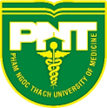Introduction
In today’s society, the population is aging at an unprecedented rate. With advancements in healthcare and improved living conditions, people are living longer than ever before. However, this aging population also brings new challenges, particularly in terms of health literacy.
Understanding Health Literacy
Health literacy refers to an individual’s ability to understand and use health information to make informed decisions about their health. It encompasses a range of skills, including reading, writing, numeracy, and critical thinking.
In an aging society, health literacy becomes increasingly important. Older adults often face complex health issues, chronic conditions, and the need for multiple medications. Without adequate health literacy, they may struggle to navigate the healthcare system, understand medical instructions, and make informed decisions about their health.
The Impact of Low Health Literacy
Low health literacy has far-reaching consequences for individuals, healthcare providers, and society as a whole. It can lead to medication errors, poor management of chronic conditions, increased hospitalizations, and higher healthcare costs.
For older adults, low health literacy can result in a lack of understanding about their medical conditions and treatment options. This can lead to non-compliance with medication regimens, missed appointments, and delayed or inappropriate care.
Healthcare providers also face challenges when dealing with patients with low health literacy. They may need to spend more time explaining medical information, use simpler language, and provide additional resources to ensure understanding. This can place a burden on already strained healthcare systems.
Promoting Health Literacy in an Aging Society
Improving health literacy among older adults is crucial for their overall well-being and the sustainability of healthcare systems. Here are some strategies to promote health literacy in an aging society:
- Clear Communication: Healthcare providers should use plain language and avoid medical jargon when communicating with older adults. They should also provide written materials in a clear and concise manner.
- Visual Aids: Using visual aids, such as diagrams, charts, and videos, can enhance understanding and retention of health information.
- Health Education Programs: Offering health education programs specifically tailored to older adults can empower them with the knowledge and skills to manage their health effectively.
- Accessible Information: Ensuring that health information is available in multiple formats, such as large print, audio, and digital formats, can cater to the diverse needs of older adults.
- Supportive Environments: Creating healthcare environments that are welcoming, respectful, and culturally sensitive can help older adults feel more comfortable seeking and understanding healthcare services.
Conclusion
As our society continues to age, the importance of health literacy cannot be overstated. By promoting health literacy among older adults, we can empower them to take an active role in managing their health and reduce the burden on healthcare systems. Clear communication, visual aids, health education programs, accessible information, and supportive environments are all key components in ensuring that older adults have the knowledge and skills to make informed decisions about their health.
Investing in health literacy initiatives is not only beneficial for individuals but also for society as a whole. It is a vital step towards creating a healthier and more equitable aging society.
